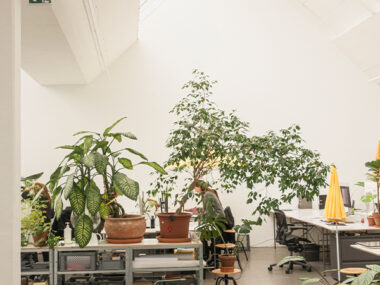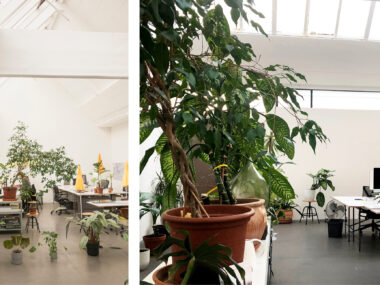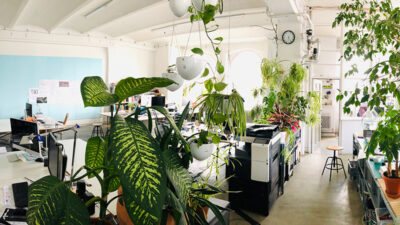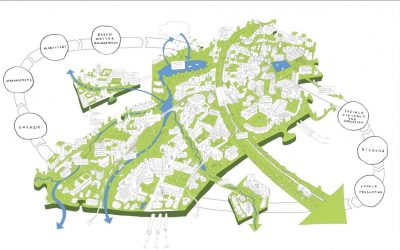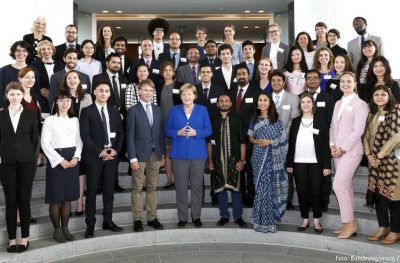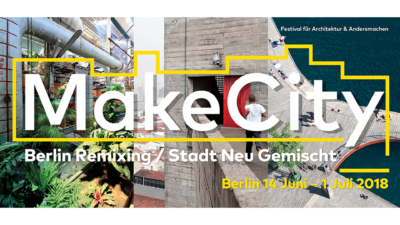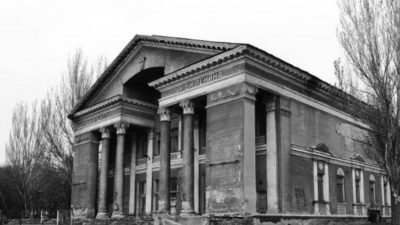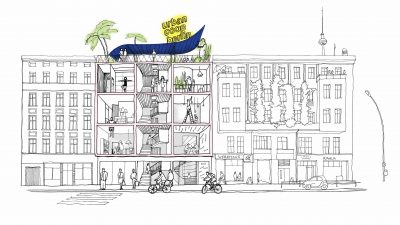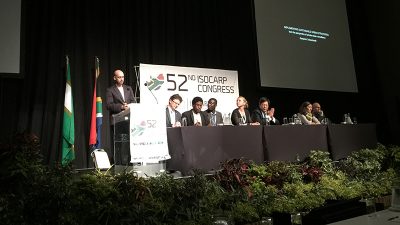Auf der Suche nach einem schönen und funktionalen Co-Working Space im pulsierenden Mitte/Kreuzberg?
Wir vermieten 1-6 Tische in unserem großzügigen Büro in der Charlottenstraße 2, located im Graphischen Zentrum nahe dem Checkpoint Charlie. Die Idee ist, ein kreatives Cluster der besten Kreativen, Planer, Denker und Designer zu gründen – im Bereich Urbanismus und Nachhaltigkeit, aber auch ganz allgemein!
Die Tische sind ab sofort verfügbar, aber auch die Anmietung zu einem späteren Zeitpunkt ist möglich. Wir bieten große Tische, genügend Platz, um soziale Distanz zu wahren, und eine freundliche Umgebung mit engagierten und netten Menschen.
Location
- Charlottenstraße 2, 10969 Kreuzberg
- Einfacher Zugang – nur 2 Minuten vom U-Bahnhof Kochstraße entfernt
- große Auswahl an Restaurants und Cafés in der Umgebung, die in wenigen Minuten erreichbar sind (Charlotte 2, Chupenga, betahaus und viele mehr)
- Der Besselpark ist nur wenige Schritte entfernt
Space
- ±400 m² Gesamtfläche und 100 m² Gemeinschaftsfläche
- Vollständig eingerichteter Arbeitsbereich mit großem Schreibtisch (ca. 10 m² Arbeitsfläche pro Person), bequemem Stuhl und anderen Geräten
- Regalfläche, falls Sie etwas aufbewahren müssen
- sehr heller, geräumiger Raum. Außerdem viel Platz für Ihre Pläne oder Poster, die Sie an der Wand aufhängen können
- große, spezielle Flächen zum Skizzieren
- umfangreiche Bibliothek mit Architektur- und Stadtplanungsbüchern
- große Küche mit Espressomaschine, Kühlschrank, Mikrowelle und Kochplatte. Ideal auch für ein Gespräch oder eine Besprechung
- keine Teppiche
- viele Pflanzen!
Infrastructure & service
- Uneingeschränkter 24/7-Zugang zum Raum
- kostenloses Internet (superschnelle Geschwindigkeit mit Glasfaser)
- Wöchentlicher Reinigungsservice
- Diebstahlversicherung, einschließlich aller elektronischen Geräte, Laptops usw.
- schöne und schlichte Design-Tische, mit den berühmten Eiermann-Rahmen
- Platz zum Abstellen von Fahrrädern oder Autos
- Erdgeschoss und einfacher Zugang
Price
Die monatliche Miete pro Schreibtisch beträgt 300 EUR – Internet, Tisch, Stuhl, Regalfläche, Schlüssel, Reinigungsservice, Abstellfläche und Küche im Preis enthalten.
People
Du teilst dir den Raum mit einem Haufen junger Stadtplaner / Architekten / Ingenieure aus aller Welt und unserem Kooperationsbüro LABELS (Cee Cee Creative)
Besucht uns in der Charlottenstr. 2 | 10969 Berlin, oder wendet euch mit Fragen an unsere Kollegin Bella, erreichbar unter:
☎️ +49 30 57 70 63 492


 English
English Русский
Русский